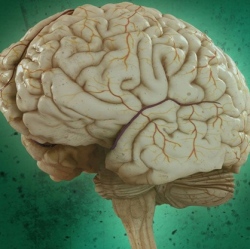
Learning a second language can have a positive effect on the brain, even if it is taken up in adulthood, a University of Edinburgh study suggests. Researchers found that reading, verbal fluency and intelligence were improved in a study of 262 people tested either aged 11 or in their seventies. A previous study suggested that being bilingual could delay the onset of dementia.
The study is published in Annals of Neurology. The big question in this study was whether learning a new language improved cognitive functions or whether individuals with better cognitive abilities were more likely to become bilingual. Dr Thomas Bak, from the Centre for Cognitive Ageing and Cognitive Epidemiology at the University of Edinburgh, said he believed he had found the answer.
Using data from intelligence tests on 262 Edinburgh-born individuals at the age of 11, the study looked at how their cognitive abilities had changed when they were tested again in their seventies. The research was conducted between 2008 and 2010. All participants said they were able to communicate in at least one language other than English. Of that group, 195 learned the second language before the age of 18, and 65 learned it after that time.
